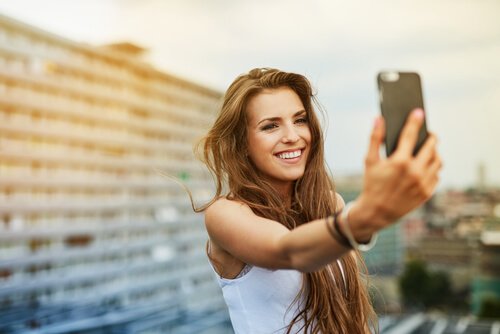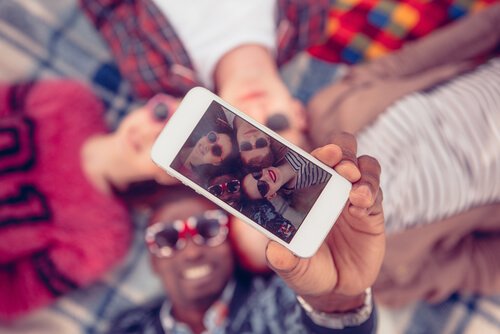5 Things a Selfie Says About You

When you take a selfie, do you think about how people are going to perceive it? Do you ask yourself why you’re taking it? Do you think that there might be some level of narcissism when you take a picture of yourself and post it?
The truth is that selfies are now almost as common as talking on the phone or texting. You get somewhere you like or want to share an activity with your friends, so you take out your phone and snap a quick selfie.
Why do we do it? To share on social media? Or maybe just to share with a friend? But it could also be for the simple pleasure of seeing ourselves. Well, the psychological implications may be subtle, but they’re there.
A selfie can betray psychopathic or narcissistic tendencies

Recently, researchers at the Ohio State Univeristy did a study that shed a little light on the subject. They discovered that there a few messages you send when you take a selfie.
- According to the results, people who post more selfies on social media show more narcissistic and psychopathic tendencies. It’s logical to think that some of them spend a lot of time editing their pictures, and that’s where narcissism comes in.
- According to this study, we also show antisocial personality traits with these pictures.
- The study also found that many people who take selfies and post them immediately and directly on social media demonstrate a lack of impulse control. It makes sense, and actually makes up an entire branch of psychology.
- However, many non-narcissistic people also spend a lot of time editing their selfies. This behavior is described as auto-objectification. Auto-objectification refers to a state of being where physical appearance becomes a part of your personality that you highly value. People in this state build their self-esteem on their physical appearance, rather than their accomplishments or abilities.
- Furthermore, many people who upload edited selfies to social media and get positive comments show elevated levels of an artificial form of self-esteem. For these people, this form of self-esteem turns into the most important aspect of their personality.

The selfie and relationships
Another study conducted by the University of Birmingham in the UK found that people who take excessive amounts of selfies tend to have lower quality relationships. Everything is more superficial and based on image instead of intimacy, generosity, or just personal relationships. Why does this happen?
- People who hang around a very narcissistic person feel self-conscious next to that person’s exterior beauty.
- Those who spend time with an excessively narcissistic person feel second-rate, like they aren’t important or interesting.
- This creates a tense climate where you always have to be ready for the next selfie. You don’t know when it’s going to happen, but you know that it will, and soon.
- This narcissism creates a sense of competition between the members of the group, which doesn’t exactly facilitate intimacy or confidence.
Is there a solution?
Is there a solution to these problems? Really, there’s nothing wrong with a selfie. But it gets problematic when when you take them in excess. Narcissism isn’t new; selfies just make it easier.

There always has and always will be people obsessed with their image. You see it even in Oscar Wilde’s “The Portrait of Dorian Gray”, created over a century ago. The key is to find psychological balance where the image projected by your selfies doesn’t become an obsession.
This text is provided for informational purposes only and does not replace consultation with a professional. If in doubt, consult your specialist.








